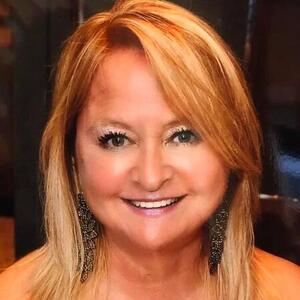The Queen's Partnerships and Innovation (QPI) team supports the University’s strategic goal to build community partnerships and fully embed Queen’s in the community. With support from external funding, the QPI team offers numerous services, resources, and programs to support entrepreneurs, including those from Queen’s, and to accelerate the growth of startups and small- to medium-sized enterprises (SMEs) within Kingston and Eastern Ontario. The University is receiving federal funding from the Women Entrepreneurship Strategy (WES) Ecosystem Fund, which helps to address gaps and build capacity in the entrepreneurship ecosystem for women. Led by QPI, the WE-CAN (Women Entrepreneurs Can) Project inspires and empowers existing and aspiring women-identifying entrepreneurs by providing them with tools, resources, expert mentors, networks and community building to expand existing businesses and to launch new ventures.
The WE-CAN Project and Strategic Procurement Services (SPS) at Queen’s University have joined forces to shine a spotlight on Kingston area businesses owned by underrepresented groups of women entrepreneurs.
Since 2019, the WE-CAN Project led by Queen’s University has supported more than 1,000 female entrepreneurs from underrepresented groups, including women in tech, Indigenous women, newcomer women to Canada, women from racialized minorities, women with a disability, rural women, and women under 40.
“Finding new markets can be a big challenge for small business owners,” notes WE-CAN Project Manager Kerry Ramsay. “For many female entrepreneurs, the opportunity to become a supplier for a major purchaser like Queen’s can be a real gamechanger.”
The WE-CAN Project’s recent collaboration with SPS will help to promote awareness of the goods and services available from local, small business owners who may be facing barriers.
There is a wide range of goods and services purchased by Queen’s. The University purchases approximately $116 million of goods and services per year (not including construction).
The WE-CAN list of Diverse Suppliers is now posted on the Queen’s Procurement web site, along with directories from other diverse organizations, including the Canadian Black Chamber of Commerce and Canadian Council for Aboriginal Business.
While the initiative is still a work in progress, SPS believes making the information on Diverse Suppliers available to Queen’s purchasers will help forge connections with suppliers the University may not currently be working with.
The goal is to continue to encourage the University community to spend more of its dollars with qualified, Diverse Suppliers.
“Inclusive procurement aims to bring recognition to traditionally underrepresented communities and people,” says Shelley Rizzo, Procurement Specialist at SPS. “It’s important for SPS to align our goals with those of the University.”
Queen’s is committed to Supplier Diversity as a part of its ongoing Social Procurement process. Social Procurement is the intentional purchase of goods and services which reflect four main pillars: Supply Chain Diversity, Accessibility, Truth and Reconciliation, and Sustainability.

“We want the Queen’s community to consider the impact their purchases are having on the environment and the values behind the suppliers they’re doing business with,” adds Nicole Fowler, Associate Director of SPS. “The University is fortunate to work with many amazing suppliers, but we don’t want to limit ourselves to a defined supplier base. We don’t want to just do what we’ve always done. We need to reach a little further and make sure we’re offering opportunities to different, qualified businesses that might bring something unique to Queen’s.”
As a part of its collaboration with SPS, the WE-CAN Project recently held a virtual seminar for women-owned businesses to learn how the University procurement system works.
“We LOVE the collaboration we have with WE-CAN and were honoured to speak at the recent workshop to help the many women who attended understand some of the nuances of public buying,” shares Rizzo “The legislation is difficult to navigate, and we were happy to share information about the policies and procedures we are dedicated to. Our plan is to build a compliant framework to support a Social Procurement Program we’re proud of here at Queen’s.”
The women entrepreneurs whose companies have been added to the WE-CAN Supplier Diversity List are also excited about the prospects of the increased exposure among members of the Queen’s community.
“As a female Indigenous entrepreneur, I’m excited that my company is included on the Supplier Diversity List through Queen’s Procurement as it will allow me to access new opportunities and offer possibilities for future growth,” says Kristine Geary, owner of Maple Leaf Tours in Kingston. “The potential to expand my business and develop new partnerships to move my business forward will be assisted by this opportunity.”
By creating and maintaining a more diverse supplier base, SPS hopes to make a big difference for small businesses. The SPS team is committed to outreach to suppliers and has been running many public sessions to educate our current and potential suppliers about public buying.
“We truly hope our clients reach out to the suppliers on the list and become introduced to new, innovative products and solutions,” concludes Fowler.
 About Vice-Principal Research
About Vice-Principal Research